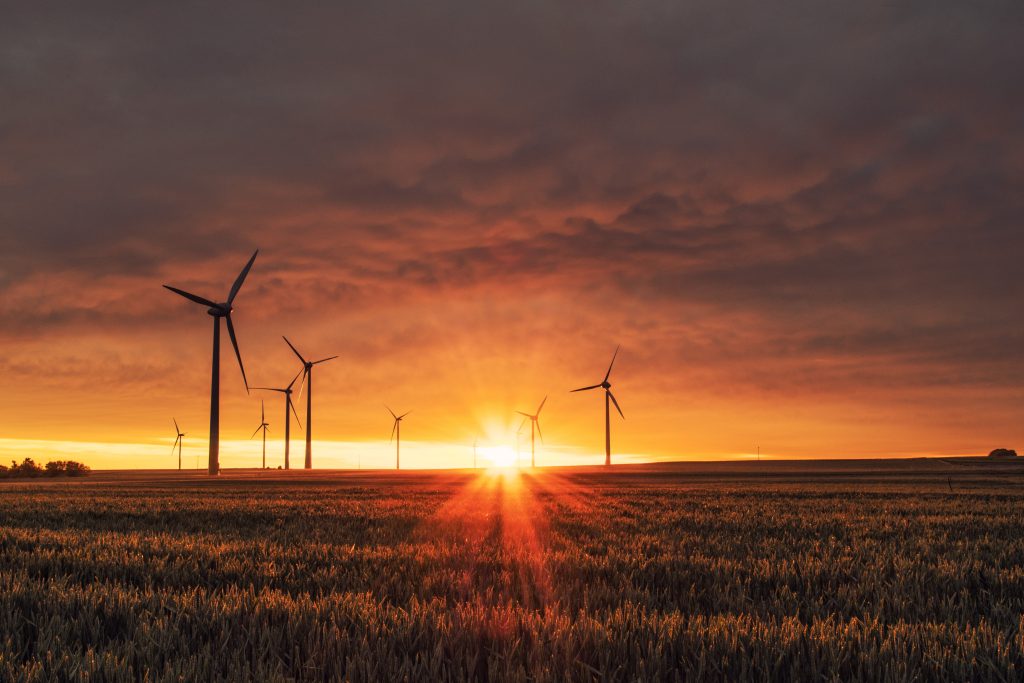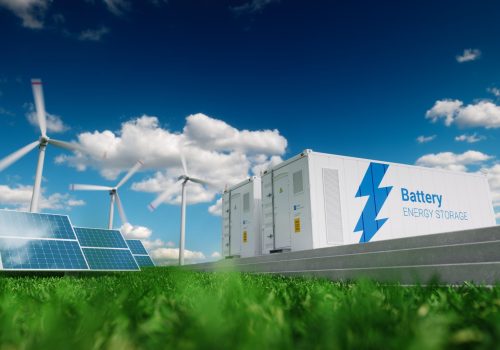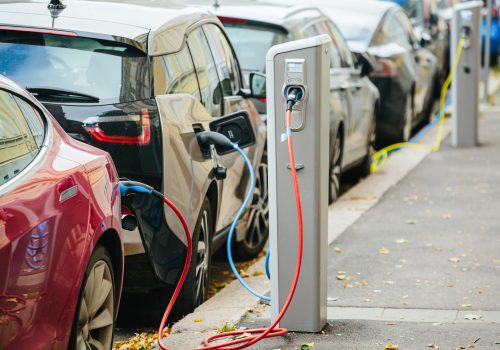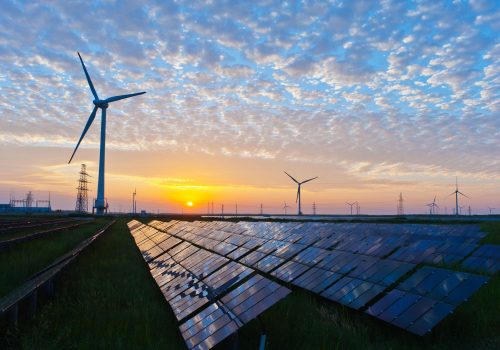This is part of an essay series on the mutual challenges posed by climate change and opportunities presented by the energy transition that the Gulf Cooperation Council (GCC) and Turkey share.
The world is at a critical juncture to address climate change. In accordance with Goal 13 of the United Nations (UN) Sustainable Development Goals, the 2015 UN Framework Convention on Climate Change (UNFCCC) COP21 summit in Paris set a cornerstone agreement in the global energy revolution, bringing 175 countries into a common cause to curb net carbon-dioxide (CO2) emissions and limit global temperature rise to 2 degrees Celsius (°C).
This year, the United Arab Emirates (UAE) has the honor of hosting the COP28 summit and welcoming around two hundred nationalities to address today’s most important global challenge. To avert the worst impacts of climate change and preserve a livable planet, greenhouse-gas (GHG) emissions need to be reduced by 45 percent by 2030 and reach net zero by 2050. COP28 may be the last opportunity to turn national commitments into action and avoid risks of abrupt, unpredictable, and potentially irreversible changes in our habitat.
COP28’s success hinges on delivering stronger commitments to curb carbon emissions, expanding financial help to manage the green transition, and developing multilateral approaches on regional climate governance in the Middle East. However, observable exchanges between regions seldom happen; each country follows its own climate policies instead of creating much-needed cooperation. If current trends continue, many parts of the Middle East could become uninhabitable in this century. This report aims to break these silos and build on the momentum of growing economic ties between Turkey and the GCC that would bring collective gains in energy transition.
Achieving net-zero emissions requires all governments, especially the major emitters, to significantly enhance their Nationally Determined Contributions (NDCs) and take immediate, bold actions to reduce emissions. At a global level, the energy industry is the source of approximately 75 percent of GHG emissions and plays a crucial role in preventing the severe impacts of climate change.
Shifting away from coal, gas, and oil-based power and toward renewable sources such as wind or solar energy could significantly decrease carbon emissions. Despite the worldwide move toward cleaner energy, the Middle East is falling behind in its efforts to achieve net-zero emissions goals. Accelerating energy transition toward zero-carbon solutions is the key to building a more sustainable future in the region.
Technology diffusion is occurring at an unprecedented rate. Globalization helped to accelerate adoption of renewable-energy technologies at levels far higher than those of just ten years ago. The cost of solar power is now cheaper by 90 percent, and wind power by 60 percent. The International Energy Agency (IEA) estimates that 60 percent of energy investments globally in the next fifteen years will be in clean-energy sources. Annual clean-energy investment has risen at double the rate of investment in fossil fuels during 2021–2023. Although more than 90 percent of the increase in clean-energy investment has taken place in developed countries and China, the Gulf Cooperation Council (GCC) and Turkey are among the few bright spots in the Global South that placed special emphasis on renewables adoption.
Over time, the GCC countries demonstrated that it is economically, environmentally, and socially beneficial to invest in clean energy and other carbon-mitigation strategies, while Turkey fostered environmentally friendly, innovative policies to decarbonize energy through market liberalization, public-private partnerships, technology transfer, and financial assistance for green investments. Turkey and the GCC share significant opportunities for synergy in the adoption of clean energy, owing to their differences in energy resources and comparative advantages.
The GCC countries, with their vast financial capital, can invest in Turkey’s clean-energy projects. These investments can support the development of renewable infrastructure and technologies, fostering collaboration between the regions, while also diversifying the GCC’s portfolio of investments abroad. Turkey can share its technology know-how, adaptation roadmap, and energy-efficiency mechanisms with the GCC to advance the mutually beneficial partnership.
As TRENDS Research & Advisory and the Atlantic Council, it is our distinct pleasure to present this joint publication exploring prospects for deepening cooperation between Turkey and the GCC countries in pursuit of the clean-energy transition. This timely joint report delivers four articles from renowned experts in climate change, energy transition, and geopolitics of energy security that shed light on the most pressing challenges of our time.
In Cooperation in Energy Transition between the GCC and Turkey, Mouza Almarzooqi discusses how dedicating financial resources and efforts toward energy-efficient projects would lead to the adoption of carbon-free and green industries and infrastructure projects. In Turkish Energy Transition 3.0: Go Together!, Eser Özdil takes readers through a journey on Turkey’s energy transition and its approach to developing international cooperation in renewable investments. In Synergy Between Electric Mobility and Renewable Energy: Turkey’s Connection with GCC Nations, Melek Öztürk explores ambitious environmental targets set by Turkey and the GCC nations, and how they focus on renewable energy, electric vehicles (EV), and innovative technologies to drive sustainable practices. In Complementary Transitions: Turkey, GCC, and the Energy of Tomorrow, Karim Elgendy explores how Turkey and GCC countries can combine their unique expertise and resources to unlock greater energy security and sustainability for both regions.
We wish you enjoyable, enlightening reading!
Dr. Serhat S. Çubukçuoğlu
Senior Fellow in Strategic Studies
Trends Research & Advisory
Further reading
Fri, Dec 8, 2023
Forging a collaborative energy transition between GCC and Turkey
Report By
Turkey and the GCC cannot self-achieve energy transition. Nations need to plan how to join forces for diversifying energy sources and reducing carbon footprints in the region.
Fri, Dec 8, 2023
How GCC and Turkey can go together toward a sustainable future
Report By Eser Özdil
While Turkey has ambitious green-energy transition strategies and projects, they need to cooperate with the GCC to overcome the financial and capacity challenges.
Fri, Dec 8, 2023
EV adoption could drive collaboration for renewable energy in Turkey and GCC
Report By
Turkey and the GCC have ambitious environmental targets. Here is how a collaboration on renewable energy and EV adoption can help with achieving those targets.
Fri, Dec 8, 2023
Charting energy transitions in the Eastern Mediterranean and Arabian Peninsula
Report By
While Turkey and the GCC have different renewable energy motivations, they need to evolve and combine experience and resources for energy security and sustainability.
Image: Photo by Karsten Würth on Unsplash





Follow the conversation on X, formerly known as Twitter, with @AC_Istanbul and @AtlanticCouncil using #ACTurkey and #ACatCOP28